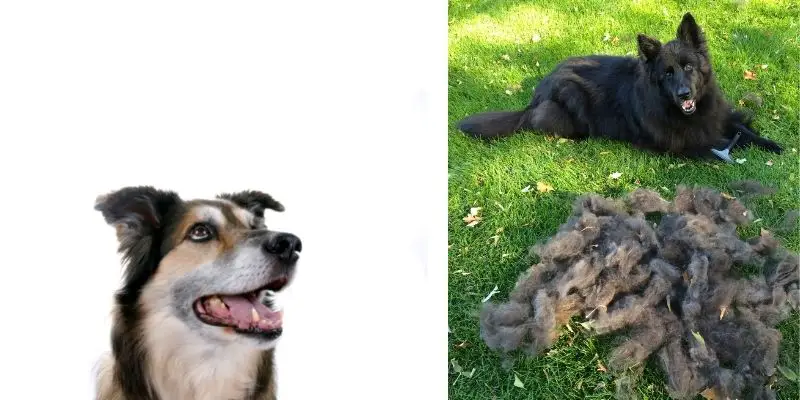German Shepherds are one of those dog breeds that everyone immediately is familiar with. They are known to be strong, brave, courageous, and loyal. It is definitely a dog breed that protects and learns fast–exactly why it is one of the most popular dog breeds, ranking #2 by the American Kennel Club.
Of course, each dog comes with its own characteristics, with pros and cons. People looking into getting a Shepherd may ask one question: Do German Shepherds shed? Yes, this is an infamous con.
Many dog groomers will know that this dog breed sheds quite a lot. In fact, a common joke among German Shepherd owners is that they often call these dogs’ German shedders’.
They have a medium-length coat and two phases in the year where they are known to shed the most. What, at first, may seem overwhelming, worry not! There are a few tricks and ways to manage it and have control.
Do you have a specific question about whether or not german shepherds shed? Then use the table of contents below to jump to the most relevant section. And you can always go back by clicking on the black arrow in the right bottom corner of the page. Also, please note that some of the links in this article may be affiliate links. For more details, check the Disclosure section at the bottom of the page.
Here's what we'll cover:
- Do German Shepherds shed a lot?
- When do German Shepherds shed the most?
- So German Shepherds shed at all?
- So German Shepherds shed more than other dogs?
- At what age do German Shepherds start shedding?
- Are German Shepherds double coated?
- How bad do German Shepherds shed?
- German Shepherd shedding season
- Can you shave a German Shepherd to stop shedding?
- How to stop a German Shepherd from shedding?
- Best German Shepherd shedding solution
Do German Shepherds shed a lot?
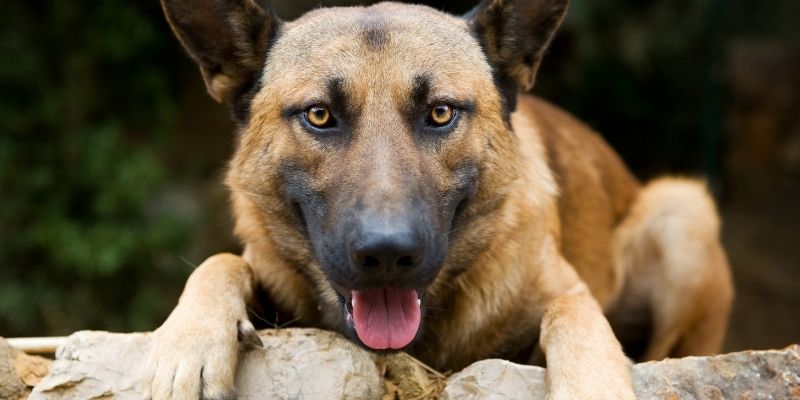
The answer is a definite and straightforward yes. German Shepherd shedding happens in significant amounts. Ask a professional groomer on a scale of 10, and they would say these dogs rank a solid 9.
Shepherds’ shedding will require you to vacuum and sweep your home regularly; they are adventurous dogs, so do expect hairs lying around your house. In addition to that, you may need to purchase a lint roller and have that on hand. This way you easily clean up your clothes and furniture.
When do German Shepherds shed the most?
Don’t let this article stop you from getting a German Shepherd. Though a non-shedding German Shepherd does not exist, this breed is still a great one to have. Their loyalty and capability to work with families are an advantage; they can also learn skills fast.
The dog’s coat will naturally respond to daylight. This means that when days grow shorter and sunlight hours become less, dogs will start to grow their winter coat. Hence, making the German Shepherd shedding season the fall season.
Old summer hairs will be pushed out as the new hairs come in, creating a German Shepherd winter coat to keep them warm.
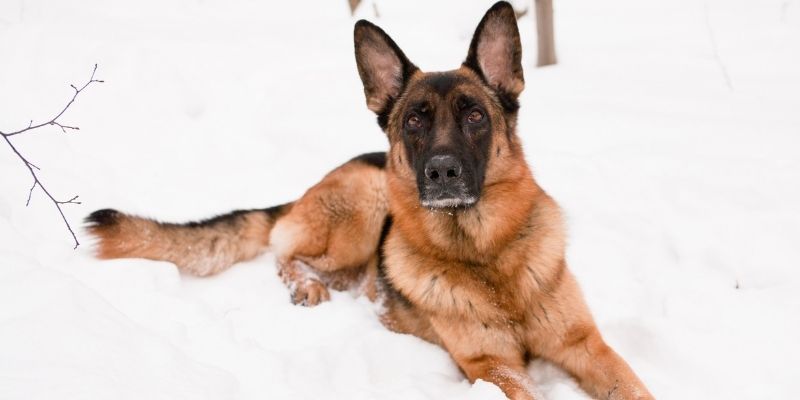
So German Shepherds shed at all?
Yes, there are various reasons for the German Shepherd’s hair shedding. The most obvious is the shedding season. Other totally normal causes are when they are neutered or are going through pregnancy (hormones cause them to shed).
And when they lose their puppy coat (they are born with this coat and get rid of it as they grow older; it’s part of their puberty). Other more abnormal reasons are stress, physical pain, allergies, and a poor diet.
So German Shepherds shed more than other dogs?
There are so many dog breeds out there, many fluffy dogs that also shed just as much. But is GSD shedding more than other dogs? Considering their large size, I would say yes. Their large size would simply mean more dog hair to come off their bodies.
At what age do German Shepherds start shedding?
As mentioned earlier, you may be seeing more shedding from your dog because they are getting rid of their puppy coat. This begins at the age of 4 to 6 months. This is when they start to grow their adult coat. Hence, they will shed more than usual, but no need to worry as it is normal!
Are German Shepherds double coated?
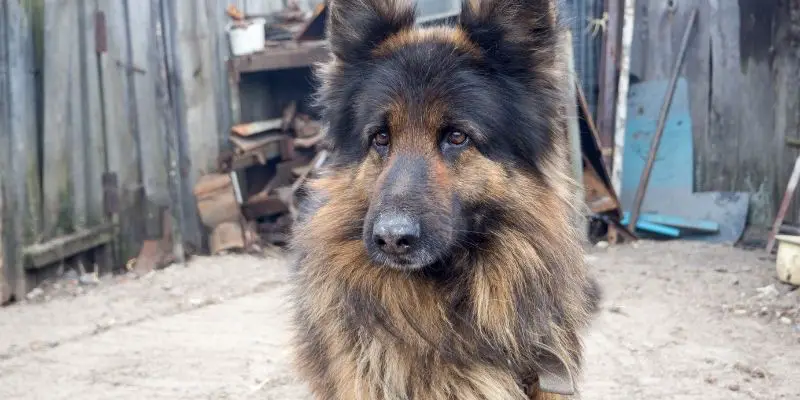
Yes, with the many dog breeds that exist, there are also a variety of dog coat types. German Shepherds have a medium-length double coat.
How bad do German Shepherds shed?
Given the fact that they are a large size, have double-coated medium-length hair, and have two heavy shedding seasons, the answer is yes. German Shepherds shed “bad” if you are the type of dog owner who likes to have a clean space.
German Shepherd shedding season
When do German Shepherds shed the most during the fall season AND in the spring? It happens in the fall because it prepares the dog for a winter coat and keeps them warm. It happens again in the spring because it “blows out” the winter coat it had. It occurs 2-4 weeks at a time.
Can you shave a German Shepherd to stop shedding?
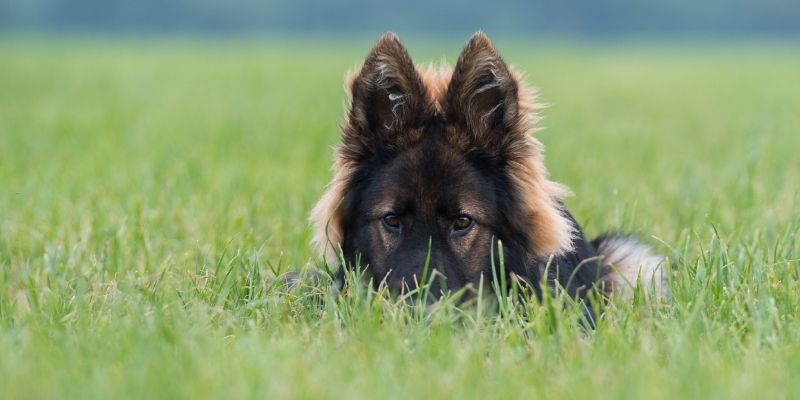
Shaving a German Shepherd cannot stop the shedding. Typically, for OTHER dogs, shaving is a reasonable way to help your dog cope with the summer. For German Shepherds, however, this is so NOT appropriate.
These dogs are naturally meant to have their double coat, and shaving them may lead to damaged fur/coat for many years after and unhealthy skin.
How to stop a German Shepherd from shedding?
Now that we’ve established do Shepherds shed, the next question is: can you stop it? No, You cannot stop a German Shepherd from shedding–their bodies are meant to shed. Period. It is what makes them adapt and survive to seasonal changes. That’s why owners jokingly call them ‘German shedders’!
Best German Shepherd shedding solution
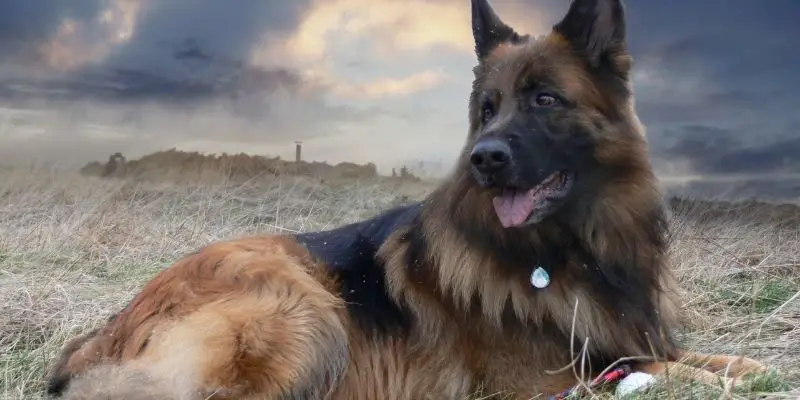
The best solution to handling GSD shedding is to regularly brush their hair and take them to the groomers once in a while to ensure their hair and skin are healthy.
This can limit how much hair they drop around your house; you can better gather and accumulate the hair in one spot and better clean up one area.
If you regularly clean the house anyway, then owning this dog should be no problem. Trust me when I say that German Shepherds are great dogs.
Thanks for the blog graphics: Canva.com

Thanks for the blog graphics: Canva.com
Doghint.com is a participant of several affiliate programs. The list includes (but not limited to) the following: VigLink, Refersion, ShareASale, and Amazon Services LLC Associates Program, an affiliate advertising program designed to provide a mean for us to earn fees by linking to Amazon.com and affiliated sites. Doghint.com does not intend to provide veterinary advice. All published articles are meant for informational purposes only and not substitute the professional veterinary consultation.

